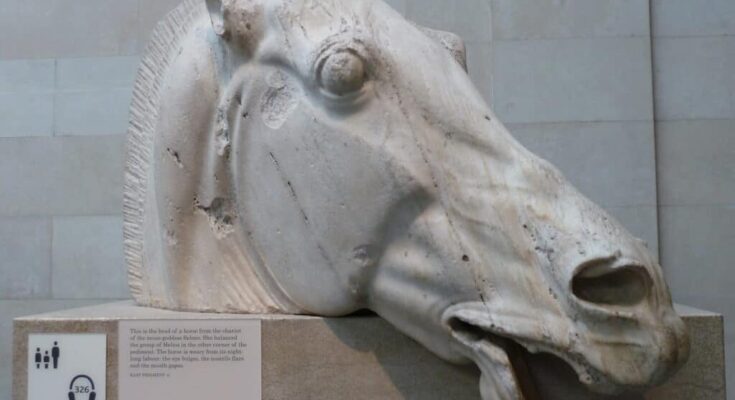
The Parthenon Sculptures will be returned to Greece, Nikolaos Stambolidis, the general director of the Acropolis Museum, told Greece’s public broadcaster ERT.
In a recent statement, Stambolidis expressed his strong optimism about the coveted return of the Parthenon Sculptures to Greece within the next few years.
This statement by such a significant official is vitally important, as it exemplifies the ongoing efforts to reunite the ancient artifacts with Greece and their original location.
The Acropolis Museum and its role in the Parthenon Sculptures return to Greece
Stambolidis has been a key figure in Greece’s campaign for the Sculptures’ return. In his interview with ERT, he mentioned the progress that has been made in recent years in the nation’s efforts to repatriate the stolen treasures.
He pointed to the UNESCO decision regarding the reunification of the Parthenon Sculptures in September 2021 as a crucial turning point, describing it as “the most significant…in recent years.”
The Acropolis Museum has played a fundamental role in strengthening Greece’s case for the return of the Parthenon Sculptures, as this is where they will be housed upon their potential return.
Stambolidis also noted that the unprecedented success of the Acropolis Museum in attracting visitors and hosting major exhibitions has strengthened its role as a world-class institution capable of housing and showcasing the reunited sculptures.
The museum’s visitor numbers have surged from 1.5 million in 2022 to 1.95 million in 2023, demonstrating its growing international appeal and position among Europe’s most iconic museums.
Recent developments have added momentum to the cause
The return of the Fagan fragment in 2022 and the Vatican’s repatriation of three sculpture pieces in 2023 have set important precedents that strengthen Greece’s position. The most recent example is a Byzantine artifact returned by a private citizen from Germany to Greece.
Stambolidis views these acts as “tested and functioning” models for future returns of artifacts that belong to Greece but have been removed from their place of origin.
The argument for reunification extends beyond national boundaries. Stambolidis stressed that “the reunification is not just a Greek request; it’s a global demand.” Legal and ethical arguments continue to form the backbone of Greece’s case against the British Museum and its hardline stance.
Stambolidis pointed out that international law does not support the retention of illegally acquired artifacts regardless of the time that has passed since their removal. While acknowledging the political nature of the issue and its intricate implications on domestic British politics, Stambolidis remains confident.
“I deeply believe within two to three years there will finally be a successful outcome for returning the Parthenon sculptures to Greece,” he stated. This optimism is partly based on growing international support, including unexpected backing from countries such as Turkey.



